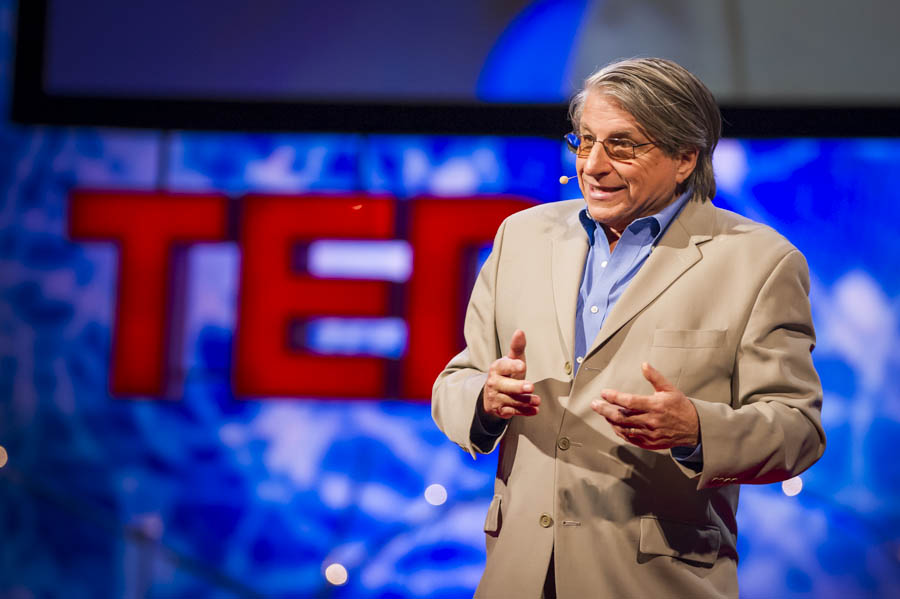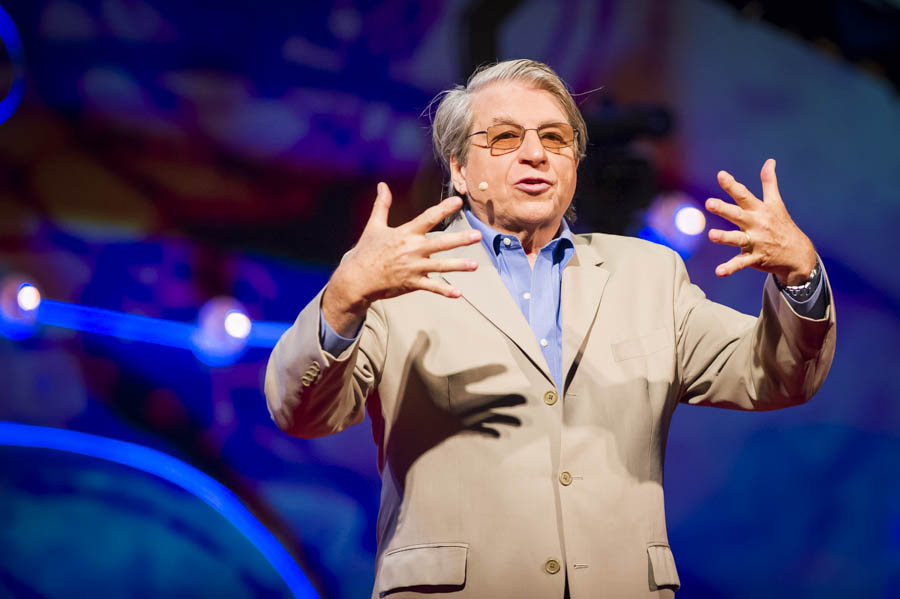“Democracy is in trouble,” announces political theorist Benjamin Barber as he makes his way onto the TEDGlobal stage. He continues: “We live in a 21st-century world of interdependence and brutal interdependent problems. Yet when we look for solutions in politics and democracy, we are faced with political institutions designed 400 years ago.”
What can one do about this asymmetry between contemporary challenges and archaic, dysfunctional political institutions? “My suggestion is we change the subject,” says Barber: It’s time to start talking about cities. Urban areas, after all, are the place in which civilization and culture were born, the home of public spaces of culture and protest. Think Zuccotti Park, Tahrir Square, Taksim Square, or even Tiananmen Square in Beijing. (This last mention raises a whoop from the audience.) “Those are the public spaces where we announce ourselves as citizens, participants, as people with the right to write our own narratives,” says Barber, who points out that more than half the world’s population now lives in cities. “Cities are where the action is. Cities are us.”
And given that cities are run by mayors, maybe, just maybe, it might be time for mayors to rule the world. This idea also raises a murmur from the crowd, but Barber promptly pushes the idea further. “Actually they already do.” Now the question is how to create a world in which they play an even more prominent role. He has some reasons for his theory:
Mayors are pragmatists: They get things done, or they’re out of a job. Barber quotes Mayor Michael Nutter of Philadelphia, who described how he would never get away with the paralysis and inaction of Washington. Mayors have to put matters of ideology, religion, or ethnicity aside to draw everyone in a city together. He references Teddy Kollek, legendary mayor of Jerusalem, who quashed religious squabbling in his office by telling the assembled clerics, “Gentlemen, spare me your sermons and I will fix your sewers.” That’s what mayors do, adds Barber. “They fix sewers.”
Mayors are homeboys: In general, mayors are from the city they govern. Barber cites Ed Koch, who legendarily asked New Yorkers how he was doing. “Imagine David Cameron wandering around the UK asking ‘how’m I doing?’ He wouldn’t like the answer,” he says, to laughs from the audience.
Mayors have higher trust levels: In the United States, only 18% of Americans approve of Congress. But rates for mayors are generally over 70%. “A mayor is more likely to get out of car and pull people out of burning building or intervene in a mugging in the street because he sees it,” he says, referring to Cory Booker, mayor of Newark, who legendarily did the former. “No head of state would be permitted by his security detail to do that.”
Cities are profoundly multicultural, open, participatory, and democratic: They work together on big issues that national leaders are apparently only able to fight about. “There is lots cities can do even when opaque stubborn nations refuse to act,” says Barber.
So what’s the bottom line? “The bottom line is we still live politically in a world of borders, boundaries, wars — where states refuse to act together,” Barber says. “Yet we know that the reality we experience day to day is a world without borders, a world of diseases without borders, doctors without borders, of economics and technology without borders, of education without borders, of terrorism and war without borders. That is the real world. Unless we find a way to globalize democracy or at least democratize globalization, we will not only risk failure to address transnational problems but risk losing democracy itself, locked up in the old nation-state box and unable to address global problems democratically.”
It’s a sobering thought. But Barber is not here to depress us. “Democracy was born in the ancient polis; I believe it can be reborn in the global cosmopolis,” he says, as he calls for the creation of a global parliament of mayors.”I love that idea,” he says. “A parliament of mayors is a parliament of citizens, and that’s a parliament of us, of you, of me.”
Benjamin Barber’s talk is now available for viewing. Watch it on TED.com »


Comments (8)
Pingback: A Democratic Vision for Local Governance: What Role Can Mayors Play? - Non Profit News | Nonprofit Quarterly
Pingback: Paralysis of nations is empowering cities - Jonathan Cartu - International Relations and Communications Firm
Pingback: Paralysis of nations is empowering cities | user's Blog!
Pingback: Benjamin Barber Nobel 3-Piece Shaving Set Chrome (Gillette Mach3) | Shaving & Hair Removal
Pingback: Startupfest 2014: Startups and the City | International Startup Festival
Pingback: ¿Y si los alcaldes gobernaran el mundo? | Open Your CityOpen Your City